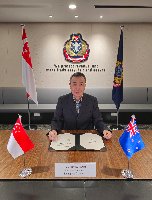Public agree with the BSA’s Fairness Standard decisions
18 June 2018
New research results show members of the public agree with the BSA’s Fairness Standard decisions
The BSA has surveyed the public about whether they think the BSA’s decisions on the broadcasting Fairness Standard are robust, and the results are released today.
The broadcasting Fairness Standard requires broadcasters to treat individuals and organisations taking part or referred to in a broadcast fairly. The BSA considers complaints from the public about whether NZ broadcasts have breached this standard and issues decisions on the findings.
56 members of the public from around New Zealand gave their opinion in focus groups.
They considered complaints about a tiler featured on the reality television programme, The Block NZ: Villa Wars, a politician in a news item on Newshub, and members of the public filmed during items on Story and Seven Sharp.
The majority of research participants agreed with the BSA’s decisions on all four programmes, and an average of 90% of the participants rated the BSA’s decisions as very good, good or acceptable.
Key themes raised by those who participated in the research include:
• Fair treatment in broadcasting requires informed consent and/or informed participation in the preparation of any programme. Participants were concerned about bystanders and/or members of the public being filmed and broadcast without their knowledge or consent, even if they were in a public place.
• Individuals featured in a programme should be given an opportunity to comment for the programme or defend themselves.
• The task of balancing the broadcaster’s right to freedom of expression against their obligation to avoid causing harm is a complex exercise for broadcasters and the BSA. It is made more difficult by the fact that different people and different cultures may have different views of what is acceptable.
• The BSA is making the right decisions under the fairness standard, but the orders are too light and compensation should be awarded. (Note: the Broadcasting Act 1989 does not give the BSA power to make a monetary award for a breach of the fairness standard. Compensation can only be awarded for a breach of the privacy standard).
BSA Chief Executive, Belinda Moffat, said:
“This research, which asks the public what they think about BSA decisions, is valuable to the BSA’s work. This report indicates that the Authority is making good decisions under the Fairness Standard which reflect community views. We appreciate it is only the views of a small group but the issues raised by this group reflect the guidelines in the broadcasting standards Codebook which we expect NZ broadcasters to comply with. The valuable thoughts and opinions provided in this research will assist the Authority in its future decision making.”
With respect to concerns that the powers of the BSA are too light, Ms Moffat said:
“The Authority can only make orders prescribed in the Broadcasting Act. This issue can only be redressed by legislative change. Our focus therefore is on ensuring that the Authority issues clear and robust decisions which can guide broadcasters to understand how the standards ought to apply.”
The full Litmus Testing Report 2018 is available here. The key findings summary is available here.
ENDS


 John Mazenier: Gaffer Tape And Glue Delivering New Zealand’s Mission Critical Services
John Mazenier: Gaffer Tape And Glue Delivering New Zealand’s Mission Critical Services Earthquake Commission: Ivan Skinner Award Winner Inspired By Real-life Earthquake Experience
Earthquake Commission: Ivan Skinner Award Winner Inspired By Real-life Earthquake Experience Reserve Bank: Consultation Opens On A Digital Currency For New Zealand
Reserve Bank: Consultation Opens On A Digital Currency For New Zealand NIWA: Ship Anchors May Cause Extensive And Long-lasting Damage To The Seafloor, According To New Research
NIWA: Ship Anchors May Cause Extensive And Long-lasting Damage To The Seafloor, According To New Research New Zealand Customs Service: A Step Forward For Simpler Trade Between New Zealand And Singapore
New Zealand Customs Service: A Step Forward For Simpler Trade Between New Zealand And Singapore Horizon Research: 68% Say Make Banks Offer Fraud Protection
Horizon Research: 68% Say Make Banks Offer Fraud Protection



